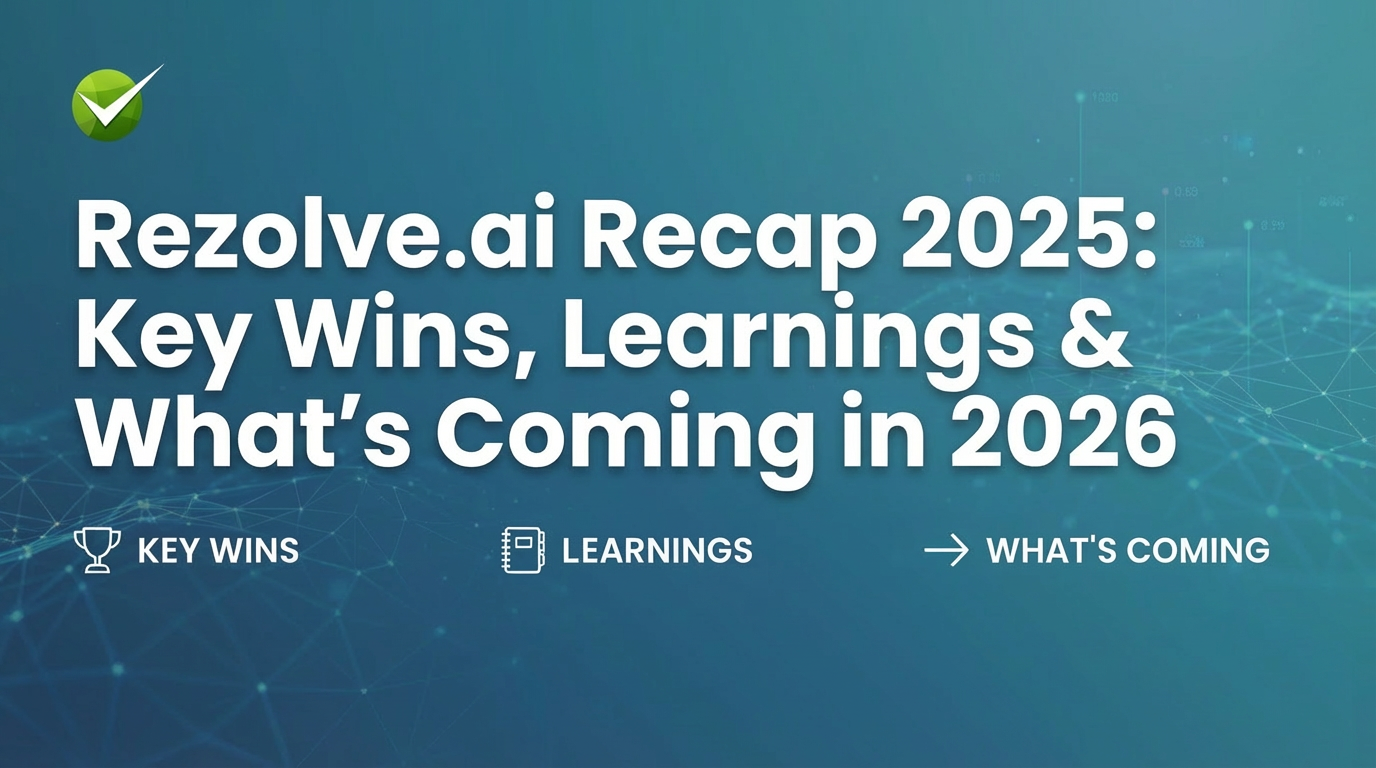Would your HR department be as responsive as that cool pizza delivery app? Well, thanks to AI, it can be now.
AI Virtual Assistants, better known as chatbots, are revolutionizing HR. These intelligent bots answer questions, provide assistance, and even complete some human resources tasks without a human being present. And the best part? They're always there to help, 24/7, 365 days a year.
An HR expert, literally at the top of your fingers, to get all your questions answered anytime, anywhere. No lining up or making appointments. More so, AI chatbots can be leveraged for everything from finding company policies to requesting time off.
This blog will explain how AI chatbots can make your life easier as an HR professional and bring a smile to the faces of your employees by showing real-life examples, benefits, and what the future holds for AI in HR.
Understanding the Role of AI Virtual Assistants in HR
What Are AI Virtual Assistants?
AI virtual assistants are software programs powered by artificial intelligence that can perform various tasks and interact with users through natural language processing (NLP). These assistants can understand and respond to text or voice commands, making them ideal for automating communication and tasks in various fields, including HR. They can range from simple chatbots that answer FAQs to sophisticated systems that manage complex HR functions.
The Evolution of HR Technology
The HR landscape has undergone significant transformation over the years. Traditional HR practices relied heavily on manual processes, leading to inefficiencies and delays. The advent of technology, from human resource information systems (HRIS) to cloud-based solutions, has helped HR professionals manage their responsibilities more effectively. However, introducing AI has taken this a step further by enabling real-time support and intelligent automation.
Key Features of AI Virtual Assistants
AI virtual assistants come equipped with various features that enhance their functionality, including:
- Natural Language Processing: Understanding and processing human language to facilitate seamless communication.
- Machine Learning: Learning from interactions to improve responses and performance over time.
- Data Analytics: Analyzing large volumes of data to provide insights and recommendations.
- Integration Capabilities: Connecting with existing HR systems to ensure a cohesive workflow.
Streamlining Administrative Tasks
The Burden of Repetitive Tasks in HR
HR professionals often find themselves bogged down by administrative tasks that are time-consuming and repetitive. These tasks can include:
- Recruitment Coordination: Scheduling interviews, sending out invites, and managing candidate communications.
- Onboarding: Preparing documents, setting up training sessions, and ensuring compliance with legal requirements.
- Employee Records Management: Maintaining accurate and up-to-date employee information.
The repetitive nature of these tasks can hinder HR professionals' ability to focus on strategic initiatives such as talent development and employee engagement.
Automation of Routine Functions
AI virtual assistants can automate many administrative tasks, allowing HR teams to redirect their efforts toward higher-value activities. For example, consider the recruitment process:
- Interview Scheduling: AI assistants can integrate with calendar applications to identify available time slots for candidates and interviewers, eliminating the back-and-forth communication typically involved in scheduling.
- Candidate Communication: Virtual assistants can send personalized messages to candidates, providing updates on their application status and answering common questions.
By streamlining these processes, AI virtual assistants significantly reduce the time and effort required for administrative tasks, enabling HR professionals to focus on strategic planning and employee engagement initiatives.
Enhancing Employee Support
The Importance of Employee Support
Employee support is critical to creating a positive work environment and enhancing engagement. Employees who have access to the information and resources they need feel more empowered to perform their jobs effectively. However, traditional HR support methods often lead to delays and frustration.
Instant Access to Information
AI virtual assistants can provide employees with instant access to information about company policies, benefits, and training opportunities. Using natural language processing, these assistants can understand employee inquiries and respond promptly, reducing the need for employees to wait for HR personnel to assist.
Examples of Common Employee Queries
- Leave Policies: Employees can ask about vacation days, sick leave, and parental leave policies and receive instant answers.
- Benefits Information: Employees can inquire about health insurance options, retirement plans, and other benefits, receiving tailored information based on their circumstances.
- Training Opportunities: AI assistants can suggest relevant training programs based on an employee's role, career goals, and previous inquiries.
Personalized Guidance Through Processes
AI virtual assistants can guide employees through complex processes, ensuring they have the support to navigate various HR functions. For example:
- Onboarding: New hires can interact with the AI assistant to learn about company culture, policies, and procedures. The assistant can provide a checklist of onboarding tasks, ensuring that everything is noticed.
- Performance Evaluations: Employees can receive guidance on preparing for performance reviews, including tips on self-assessment and goal-setting.
By providing personalized support, AI virtual assistants contribute to a positive employee experience and help build a culture of engagement.
Facilitating Communication and Feedback
The Role of Communication in Employee Engagement
Effective communication is crucial for maintaining employee engagement. Employees who feel heard and valued are more likely to be motivated and committed to their organization. However, traditional communication methods can be cumbersome, leading to misunderstandings and disengagement.
Automated Check-Ins and Surveys
AI virtual assistants can facilitate regular check-ins and gather feedback from employees. By automating these processes, HR departments can gain valuable insights into employee satisfaction and engagement levels. For example:
- Pulse Surveys: AI assistants can send brief surveys to employees, asking for feedback on their experiences, work environment, and job satisfaction. This data can help HR teams identify areas for improvement and develop targeted engagement strategies.
- Regular Check-Ins: AI virtual assistants can schedule regular check-ins with employees to discuss their progress, challenges, and goals, fostering a culture of open communication.
Analyzing Feedback for Insights
One of the significant advantages of AI virtual assistants is their ability to analyze feedback and identify trends. These assistants can provide HR teams with actionable insights by collecting and processing data from employee interactions and surveys. For instance:
- Identifying Pain Points: If multiple employees report similar challenges or frustrations, the AI assistant can flag these issues for HR to address promptly.
- Measuring Engagement Levels: By analyzing survey responses over time, HR can track changes in employee engagement and take proactive steps to enhance satisfaction.
Personalizing Employee Experiences
The Importance of Personalization in HR
Personalization is becoming increasingly crucial in HR practices. Employees expect tailored experiences that align with their individual needs and aspirations. AI virtual assistants can analyze employee data and interactions to provide personalized recommendations, enhancing engagement and satisfaction.
Tailored Recommendations
AI virtual assistants can offer tailored suggestions based on an employee's role, preferences, and previous interactions. For example:
- Training and Development: If an employee frequently inquires about skill development, the AI assistant can suggest relevant training courses or mentorship programs that align with their career goals.
- Recognition and Rewards: AI assistants can track employee achievements and suggest appropriate recognition methods, whether a simple congratulatory message or a formal award.
Fostering a Culture of Recognition
Recognizing employee contributions is crucial for fostering a positive workplace culture. AI virtual assistants can help by reminding managers about upcoming employee milestones, such as work anniversaries or project completions. This proactive approach ensures that employees feel valued and appreciated.
Improving Data Management and Compliance
The Importance of Data Management in HR
Managing HR data is essential for compliance, decision-making, and reporting. However, traditional data management processes can be cumbersome and error-prone. AI virtual assistants can streamline data management by automating data entry, ensuring accuracy, and maintaining organized records.
Automating Data Entry and Record Keeping
AI virtual assistants can automate data entry processes, reducing the likelihood of human error. For instance:
- Employee Onboarding: When new hires complete onboarding forms, the AI assistant can automatically input their data into the HR system, ensuring accurate record-keeping.
- Leave Management: AI assistants can track employee leave requests, update records in real time and notify HR personnel of any discrepancies.
Ensuring Compliance and Reporting
Compliance with labor laws and regulations is critical for HR departments. AI virtual assistants can help HR teams stay compliant by providing reminders for important deadlines, such as training renewals or performance evaluations. Additionally, they can assist in generating reports for audits or compliance reviews, reducing the administrative burden on HR staff.
Overcoming Challenges in AI Implementation
Addressing Employee Concerns
While the benefits of AI virtual assistants in HR are clear, some employees may have concerns about the technology. These concerns can include:
- Job Displacement: Employees may worry that AI will replace their roles or reduce job opportunities in HR.
- Privacy and Security: Data privacy and security concerns may arise, especially when sensitive employee information is involved.
Strategies for Successful Implementation
To overcome these challenges, organizations can take several steps to ensure successful implementation:
- Transparent Communication: Communicate the purpose and benefits of AI virtual assistants to employees. Highlight how these tools will enhance their work experience rather than replace human roles.
- Training and Support: Provide employees with training on how to use AI virtual assistants effectively. This can alleviate concerns and empower employees to leverage technology to their advantage.
- Continuous Feedback: Encourage employees to provide feedback on their experiences with AI virtual assistants. This feedback can help organizations make necessary adjustments and improvements.
The Future of AI in HR
Emerging Trends
The landscape of HR technology is continually evolving, and AI will play an increasingly significant role in shaping its future. Some emerging trends include:
- Advanced Predictive Analytics: AI virtual assistants will leverage predictive analytics to anticipate employee needs, identify potential issues, and suggest proactive solutions.
- Enhanced Natural Language Processing: As NLP technology advances, AI virtual assistants will become even more adept at understanding complex queries and providing accurate responses.
- Integration with Other Technologies: AI virtual assistants will increasingly integrate with other HR technologies, such as applicant tracking systems (ATS) and performance management platforms, to create a seamless experience for HR professionals and employees.
The Verdict
AI virtual assistants are driving a sea of change in HR processes and employee experiences by automating workflows, enhancing communication, personalizing experiences, and managing data. In addition, as organizations continue to adopt the technology, operations will start getting seamlessly organized, and the workforce will become even more active and satisfied. The future of HR belongs only to those who can use AI to drive efficiency in facilitating employee experiences and making the HR landscape vibrant and responsive.
Hence, organizations that realize close bonding with employees and utilize virtual assistants using AI will be more capable of sustaining business environments in the future. Therefore, this presents an opportunity for human resource departments to develop an innovative culture that collaborates towards excellence and benefits the employees and the organization by embracing technology and addressing possible challenges.

.png)




.webp)




.jpg)

.png)








.png)